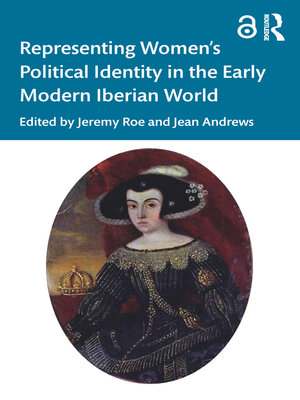
Sign up to save your library
With an OverDrive account, you can save your favorite libraries for at-a-glance information about availability. Find out more about OverDrive accounts.
Find this title in Libby, the library reading app by OverDrive.



Search for a digital library with this title
Title found at these libraries:
| Loading... |
By exploring textual, visual and material culture, this volume presents a range of new research into the experiences, agencies and diverse political identities of Iberian women between the fifteenth and early-eighteenth century.
Representing Women's Political Identity in the Early Modern Iberian World explores how the political identities of Iberian women were represented in various forms of visual culture including: religious paintings and portraiture; costume; and devotional and funerary sculpture. This study examines the transmission of Iberian culture and its concepts of identity to locations such as Peru, Goa and Mexico, providing a rich insight into Iberia's complex history and legacy. The collection of essays explores the lives of protagonists, which vary from queens and members of the nobility to painters and nuns, allowing for a more nuanced understanding of both the elite and non-elite woman's experience in Spain, Portugal and their overseas realms during the early modern period.
By addressing the significance of gender alongside the visual representation of political ideology and identity, this book is an invaluable source for students and researchers of early modern Iberia and the history of women.
Chapter 11 of this book is freely available as a downloadable Open Access PDF at http://www.taylorfrancis.com under a Creative Commons Attribution (CC-BY) 4.0 license.






